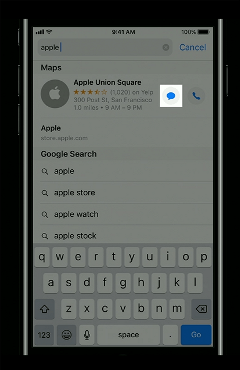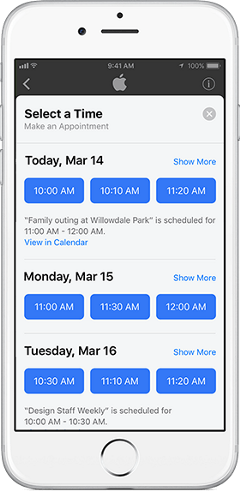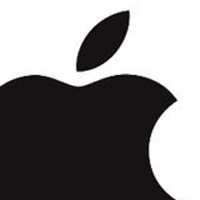Top Takeaways from Apple's New Business Chat

The many available channels are, however, taxing companies wanting to provide stellar customer service but without the manpower to respond instantaneously to a Facebook message, a public Tweet, an incoming email, a live chat, a phone call, a text or any other medium customers find convenient for them during their moment of need.
Facebook is innovating quickly in this space to make bot development accessible for companies of all sizes (thus helping companies keep up with queries without extra employee support). Twitter is also launching customer service features like the ability to include a direct message link when responding to a query (thus moving public conversations into a private setting).
One company in particular, Apple, makes a whole lot of sense when it comes to investing in messaging services - just think of how many of the 2 billion messages sent on Facebook Messenger each month are conducted on iOS? With Messenger being the second-most popular iOS app of all time (behind Facebook), we'd wager it's a good portion.
This tells us, of course, that iOS users are open to communicating with companies and contacts through a messaging service, but what if the middle man (Facebook) could be cut out? It can be.
Business Chat Takeaways
Apple released Business Chat this month as a developer preview (public launch is slated for 2018), and it is set to be more convenient than Messenger in many ways. For starters, our iPhones know a lot about us. Facebook does too of course (the events we are attending, the types of posts we tend to share, the advertisements we click on or hide, etc.), but our phones house our contacts (name, phone, emails, addresses), our schedules (calendar), our whereabouts (Facebook does too if we have location services on), our searches for directions (assuming we look for them in the native Maps app), our Web searches (using Safari) and our payment methods (Apply Pay, Apple Pay Cash). Let's take a look at some use-cases for Business Chat.
+ It Works in Maps
If you're like many searching for directions within iOS Maps, you likely do more in Maps than just get the address. You may go to the company's website, read its reviews or call the business for a quick answer. With Business Chat, end-users will now be able to message the company directly within Maps as well.
With Waze (Google) being so popular, however, it's difficult to say how widely used this Business Chat feature will become. There are several instances, however, where we can see how Google would stand to perhaps expand Google Hangouts to its apps and browser (as a Business Chat competitor).
 + It Supports Safari
+ It Supports Safari
When a person currently uses Safari on their iOS device, they are often presented with a way to call a business using click-to-call within the search results.
When Business Chat is publicly available, they will be able to click to message within the search results as well.
"This is high order efficiency and although the merchant will need yet another platform to support, it will become a standard over time and likely to be expected as a direct contact point." - Brian Roemmele
+ It's a Personalized Shopping Experiences
With Apple Business Chat, an e-commerce customer can open the app, ask a product question and buy the product using Apple Pay (with one touch). The company can suggest products, send links to products or include lists of products within Business Chat. With this, customers are getting a personal shopper of sorts.
Shopping within Business Chat will likely take some getting used to for end-users when this is released publicly. That said, when a customer has a pretty good idea of what they want but has a quick question or wants a more personal experience, Business Chat presents an easy way to make a purchase. On the other end of the spectrum, those who are currently uncomfortable with shopping online, might find this sort of 1:1 shopping experience comforting enough to start purchasing items through it. This sort of guided shopping could be incredibly time consuming for businesses without automation in place.
+ It Supports Customers After the Sale
Once a person has completed a transaction within Business Chat, they are able to return to their conversation with the company and track their orders, ask different questions, etc. What's more, Business Chat stands to help companies who are currently struggling with using what they know about a customer (e.g., purchase history, name, location, etc.) in customer service interactions (because of disparate systems used to house data). Business Chat has what is called "long-live sessions," which keeps the customer's information so that both he or she can review their interactions with a company and the company itself can have context to personalize service.
Additionally, developers can include "chat intent" values within their links so that they can see where a customer has clicked, providing the business with more context of the person's chat as well as values to know where to route a person (by location or what they may need, like tech support).
+ It's Omnichannel Aware
Retailers understand that transactions are not always as straight-forward as choosing a product a company has suggested and buying it with one fingerprint scan (Apple Pay). Customers are complex and their orders can be too. Business Chat will provide a way to allow for different delivery types supported by the company. For instance, a customer can select the best time of day they would like to pick up their order in a local store versus having it delivered.
Business Chat supports other offline efforts as well if developers link QR Codes, Core NFC and photo uploads in Business Chat to allow for real-world interactions.
 + It's a Smart Scheduler
+ It's a Smart SchedulerThe scheduling component of Business Chat works with a person's iOS Calendar, which allows the end-user to see if they have conflicting appointments (see image).
+ It Prioritizes Voice Search
Apple Business Chat speaks to so many trends Web professionals are seeing these days - the need for real-time, contextual conversations with customers wherever they choose to initiate a conversation. One of those touchpoints businesses are needing to be cognizant of and provide support for is voice search.
Google reports that 20 percent of its mobile searches in 2016 used voice search and by all accounts those numbers are expected to rise. When released publicly, iOS users will be able to ask a question of Siri and, in this case assuming it returns business results, initiate a conversation with one of those listings. They can even keep their outputs completely voice activated, dictating what text they want to include.
+ It's Dependent on Development
Companies should start to see a pattern developing here. Business Chat will require integration with existing systems. A local service provider wanting to allow customers to schedule service within Business Chat will need to ensure that those appointments are fed into whatever current system they use for sending out technicians. What's more, the customer's information (name, address, service details, etc.) will need to be fed into a customer relationship management system or another platform used to retain customer information. From there, a marketing automation system is likely involved as well - following up to customers who exhibit certain behaviors or fall into certain customer segments.
As of now, Apple requires businesses to "get connected on a customer service platform that supports Business Chat." At this point, it's difficult to say how a retailer will ensure order management, inventory levels, scheduling availability and other critical operational elements will be addressed to avoid mishaps. Apple says to get started, businesses need to (1) start developing using the Business Chat sandbox, (2) get connected on a customer service platform that supports Business Chat (LivePerson, Salesforce, Nuance and Genesys) and (3) apply for Business Chat.
While there are certainly a lot of questions to be answered, companies small and large will want to see how they can incorporate Business Chat into their operations. Conducting more complex tasks (like order completion) within Chat could prove to be difficult for enterprises, but customers will eventually expect the option to chat with a company within Map, Safari, Spotlight and Siri results.
Apple is giving companies a year lead time to develop before this product is available publicly, so use the time wisely: watch this video (not supported on Chrome), think of use-cases and how to respond to those, task developers and ask your existing platform vendors (e-commerce, CRM, CMS, payment gateways, etc.) how to support Business Chat even if you are not a direct customer of the customer service platforms currently working with Apple.








